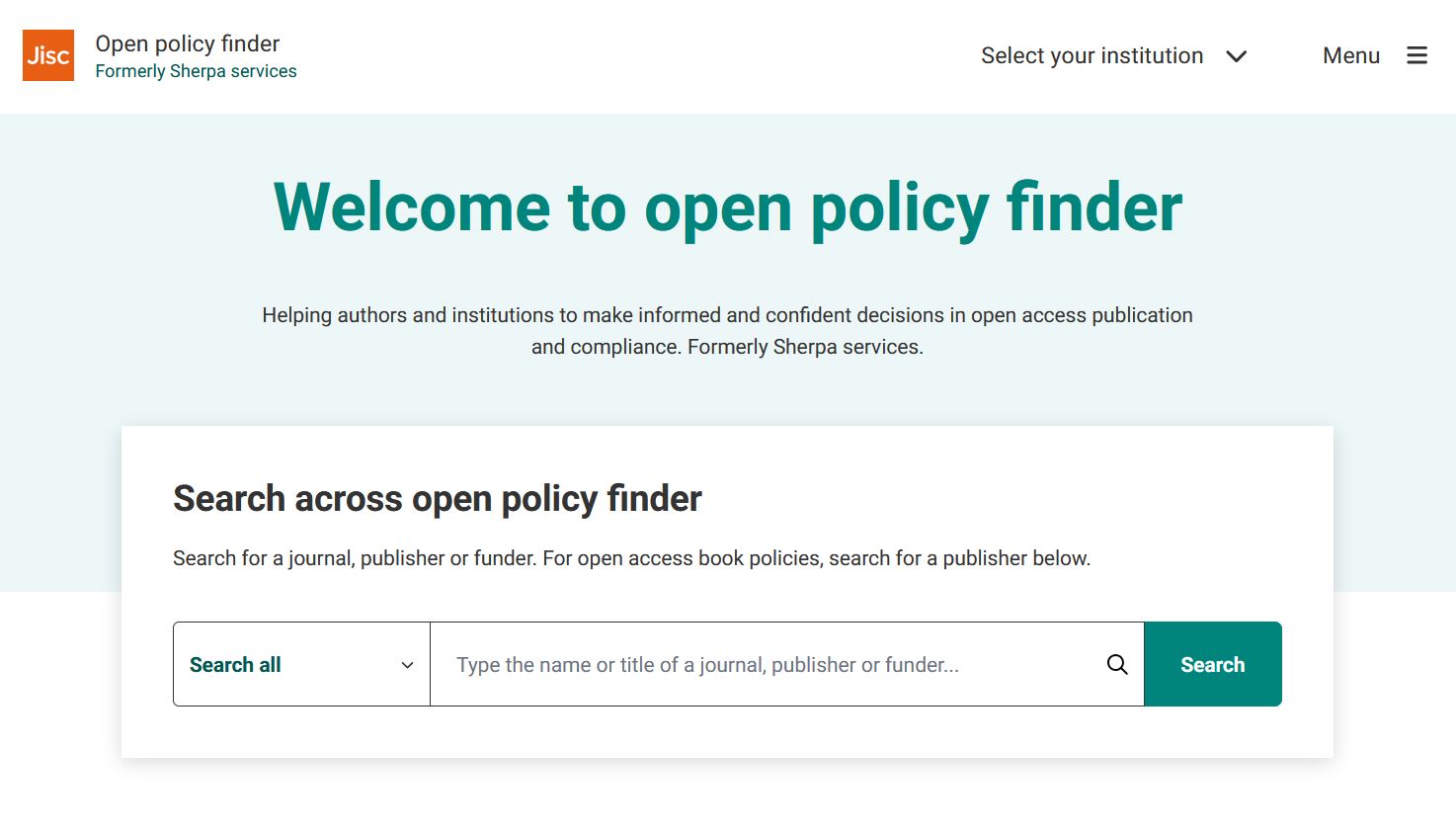Possibilities for Secondary Publication of Your Research Articles
Even though the exploitation rights are usually exclusively transferred to the publishers, they generally allow authors to make a secondary publication under certain conditions. However, this usually excludes the publisher's version/published version of the article. The possibilities are summarized and searchable on the platform Open Policy Finder.
The Open Policy Finder only refers to the general conditions (Default Policies) of the publishers, which may vary for individual journals of a publisher (in some cases, you may have more extensive rights for an individual journal than in the general publisher's conditions). Therefore, you should always check the conditions of the respective journal or review your own publication contract in individual cases.
It is therefore not entirely hopeless: usually, a secondary publication – at least of the postprint/AAM – is allowed after a certain period. However, networks like ResearchGate are usually not covered, but Open Access repositories like EPub Bayreuth are. These also offer additional functions and services such as networking with other indexing tools like Google Scholar and automatic release of articles as soon as possible.
The University of Bayreuth also recommends using EPub Bayreuth in its Open Access Strategy to make preprints of scientific articles available worldwide. Embargo periods can be specified when uploading the article, so it is automatically released after the period expires.
The University Library is happy to assist you in checking which version you are allowed to make available on EPub Bayreuth and when.

